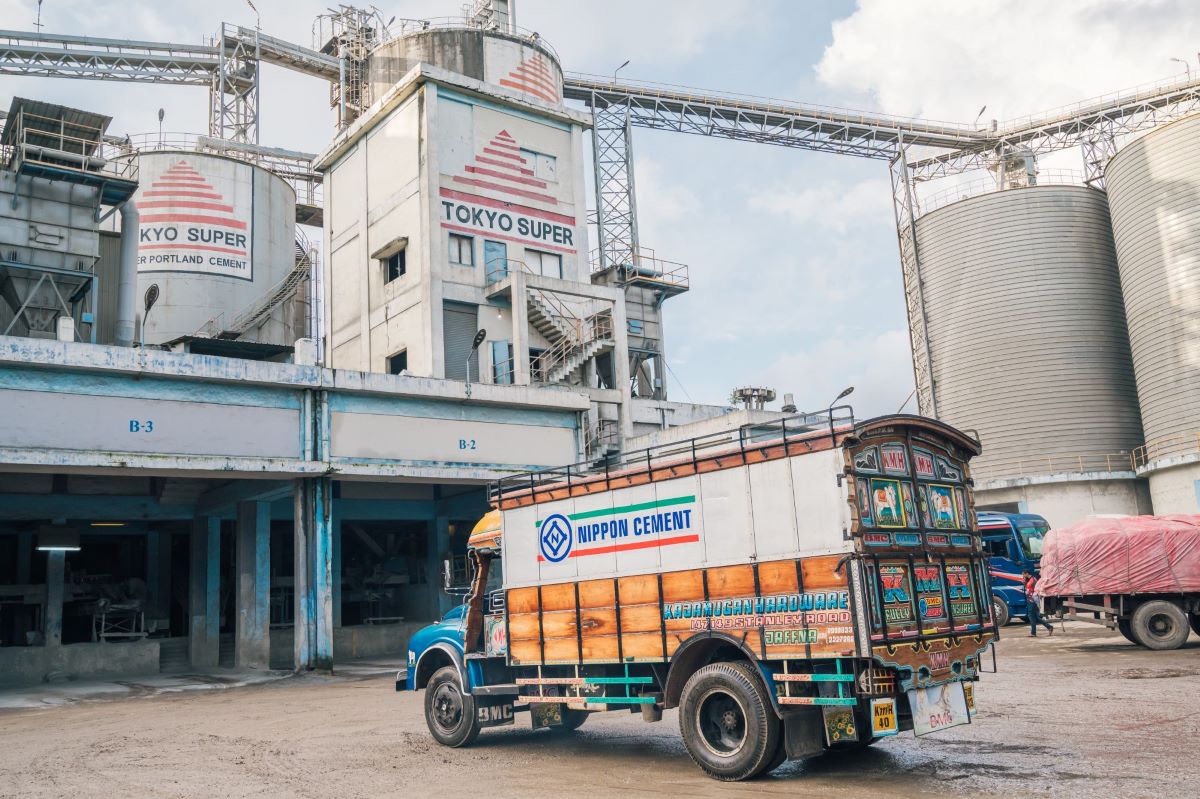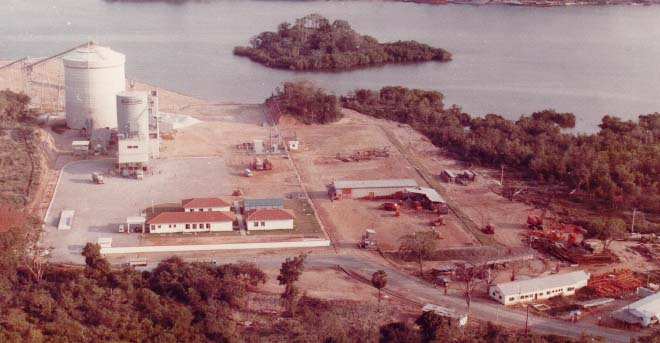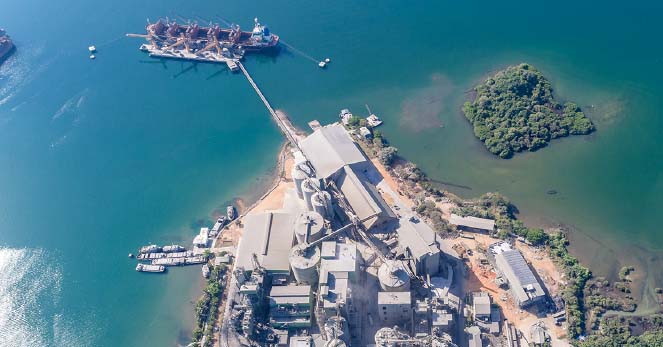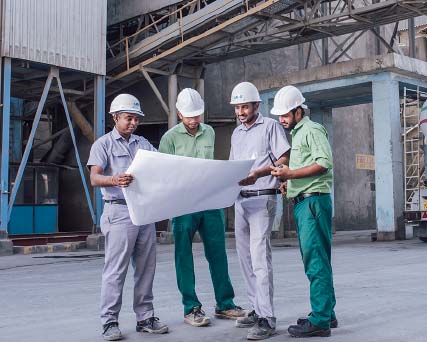Filtered Press Release : 2024 May

Tokyo Cement signals growth in Q4 FY24 performance
Quarterly Financial Review For the 4th quarter ending 31st March 2024, Tokyo Cement Group (Tokyo Cement) reported a turnover of Rs. 13,145 million (a 7% decline over the same period of the previous year) and a Profit After Tax (PAT) of Rs. 722 million (a 2% increase over the same period). The 7% decrease in …
Quarterly Financial Review
For the 4th quarter ending 31st March 2024, Tokyo Cement Group (Tokyo Cement) reported a turnover of Rs. 13,145 million (a 7% decline over the same period of the previous year) and a Profit After Tax (PAT) of Rs. 722 million (a 2% increase over the same period). The 7% decrease in turnover for Q4 is attributed to the pricing difference between corresponding quarters, which dropped from Rs. 2,750/- to Rs. 2,450/-. The impact of this 11% price reduction on the Group’s turnover was softened by a 13% increase in sales volume for the comparative quarters.
Turnover for the Financial Year ending 31st March 2024 was Rs. 49,824 million (a 12% decline over the previous year) and PAT for the Financial Year was Rs. 2,423 million (a 52% decline over the previous year). Despite a notable decrease in PAT and turnover, there was a 14% year-on-year growth in sales volume, which outpaced the industry growth of 8.5% for the Financial Year. With this sales growth, Tokyo Cement was able to maintain its market share, navigating intense competition to seize a larger slice of the market.
On the 1st of January 2024, the Value Added Tax (VAT) was increased from 15% to 18%, consequently raising fuel and transportation costs. Reflecting this cost impact, the Maximum Retail Price (MRP) of a 50kg bag of cement was increased to Rs. 2,450/-. The new price remained unchanged until the end of April. As of this article, the price of a 50kg cement bag has been reduced to Rs. 2,400/- from the 1st of May 2024, in line with the company’s policy to always explore possibilities of adjusting consumer prices depending upon cost advantages based on cost inputs and world market forces.
The Economic Environment
Construction activities showed signs of recovery with the commencement of several foreign-funded projects in addition to public investment in infrastructure developments, including roads and utilities. This upward momentum continued during the quarter with the resumption of private sector investments in line with the downward trending interest rates.
However, the 3% increase in VAT, the expansion of the list of VAT liable goods and services, and the reduction of the VAT liable threshold, contributed to the contraction of consumer purchasing power. The resultant escalation of fuel and energy costs further elevated operational expenses for both service providers and manufacturers. However, there was an approximate 7% appreciation of the Rupee against the US Dollar over the course of the quarter under review, the benefit of which is yet to be reflected in the prices of goods and services.
The financial year ended with positive indications of an economic recovery. Sri Lanka recorded a notable rise in income from tourism and foreign remittances, increasing the country’s official reserves. Simultaneously, the Government deployed several important welfare schemes targeting the lowest income groups, spreading the positive economic benefits among more people.
Outlook
The Group anticipates domestic cement consumption to steadily grow in the short-term conditional to the stability of foreign exchange and interest rates. The relaxation of import restrictions improved accessibility to construction materials. Further, the downward trend of lending rates facilitated an increase in commercial sector borrowing.
The restraints on purchasing power are not expected to relax immediately, due to the long-term effects of a weakened currency and impaired domestic production. The benefits of the currency appreciation and reduced interest rates, which were not leveraged during this quarter are expected to contribute to a tangible reduction in the cost of living, starting with key commodities, energy, and fuel prices in the upcoming quarters.
Even in such an encouraging environment, the speed and the robustness of industry recovery will largely depend on; the economic and political stability, favourable weather conditions, and the absence of geopolitical tensions that directly impact raw material prices and global freight costs, to allow for the smooth functioning of all industry mechanics.
Tokyo Cement will continue its keen observation of the market and stand ready to deploy swift measures to manage the impact of the economic environment on its performance. In the meantime, the Group will focus on building on its strengths to allow itself to capture the growth opportunities of the industry.
-end-
Archive
| 2025 | Jan | Feb | Mar | Apr | May | Jun | Jul | Aug | Sep | Oct | Nov | Dec |
| 2024 | Jan | Feb | Mar | Apr | May | Jun | Jul | Aug | Sep | Oct | Nov | Dec |
| 2023 | Jan | Feb | Mar | Apr | May | Jun | Jul | Aug | Sep | Oct | Nov | Dec |
| 2022 | Jan | Feb | Mar | Apr | May | Jun | Jul | Aug | Sep | Oct | Nov | Dec |
| 2021 | Jan | Feb | Mar | Apr | May | Jun | Jul | Aug | Sep | Oct | Nov | Dec |
| 2020 | Jan | Feb | Mar | Apr | May | Jun | Jul | Aug | Sep | Oct | Nov | Dec |
| 2019 | Jan | Feb | Mar | Apr | May | Jun | Jul | Aug | Sep | Oct | Nov | Dec |
| 2018 | Jan | Feb | Mar | Apr | May | Jun | Jul | Aug | Sep | Oct | Nov | Dec |
| 2017 | Jan | Feb | Mar | Apr | May | Jun | Jul | Aug | Sep | Oct | Nov | Dec |







